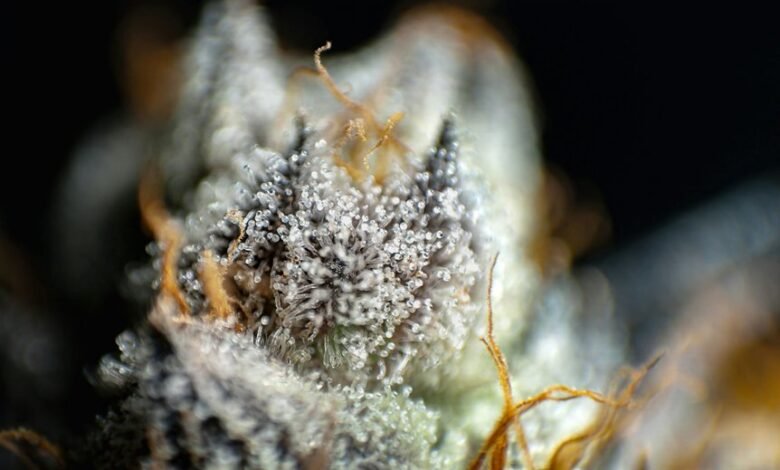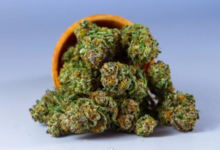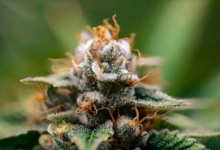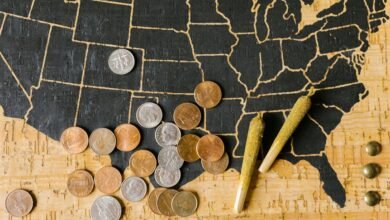What the Difference Between Thc and Cbd

The differences between THC and CBD are significant and multifaceted. THC, known for its psychoactive effects, interacts with the brain's CB1 receptors, leading to a characteristic high. Conversely, CBD does not produce such effects and is often sought for its therapeutic properties. Understanding how these compounds function within the body is crucial. Additionally, their varying legal statuses complicate their societal acceptance and use. Exploring these aspects reveals deeper implications for consumers and policymakers alike.
Understanding THC: The Psychoactive Component
Although many cannabis compounds contribute to its effects, tetrahydrocannabinol (THC) is primarily recognized as the psychoactive component responsible for the characteristic "high" associated with marijuana use.
THC effects include heightened sensory perception, altered time perception, and euphoria.
Additionally, THC benefits may encompass pain relief, appetite stimulation, and anxiety reduction, positioning it as a significant compound for those seeking both recreational enjoyment and therapeutic advantages.
Exploring CBD: The Therapeutic Alternative
What makes cannabidiol (CBD) distinct from THC lies in its non-psychoactive properties and diverse therapeutic applications.
CBD benefits include anxiety reduction, pain relief, and anti-inflammatory effects, making it a compelling alternative for those seeking natural remedies.
With ongoing research into its therapeutic uses, CBD continues to gain recognition as a versatile option for enhancing overall well-being without the intoxicating effects associated with THC.
How THC and CBD Interact With the Body
As the body processes cannabinoids, both THC and CBD interact with the endocannabinoid system (ECS), which plays a crucial role in regulating various physiological functions.
THC primarily binds to CB1 receptors, influencing mood and perception, while CBD has a more indirect receptor interaction, moderating anxiety and inflammation.
Dosage effects vary, with lower amounts often providing therapeutic benefits without the psychoactive effects associated with THC.
The Legal Landscape of THC and CBD
The legal landscape surrounding THC and CBD has evolved significantly in recent years, reflecting changing societal attitudes and increasing recognition of their potential therapeutic benefits.
Legal regulations vary widely across states, with some embracing full legalization while others impose strict restrictions.
This patchwork of state variations complicates access and understanding, highlighting the need for continued advocacy to unify legal frameworks and promote personal freedom in cannabis use.
Conclusion
In summary, THC and CBD represent two distinct facets of cannabis, each with unique properties and applications. THC's psychoactive effects contrast sharply with CBD's non-intoxicating benefits, appealing to different audiences and needs. As society continues to navigate the complexities of cannabis legalization and acceptance, one must consider: how do these compounds fit into our broader understanding of health and wellness? Ultimately, the choice between THC and CBD hinges on individual preferences and desired outcomes.






